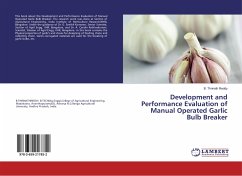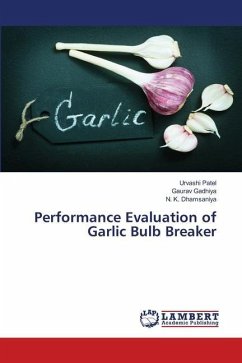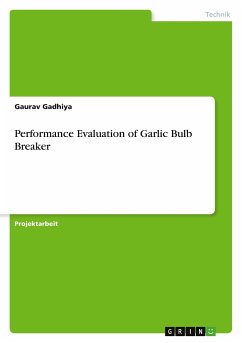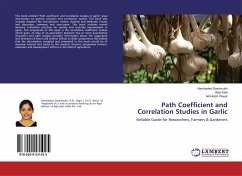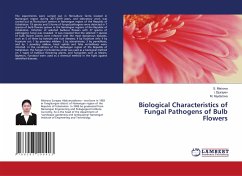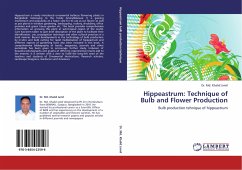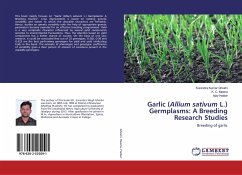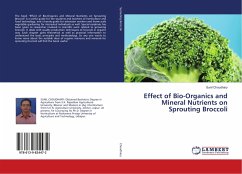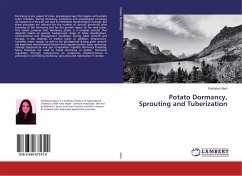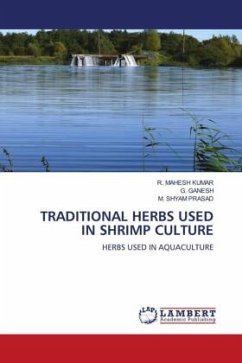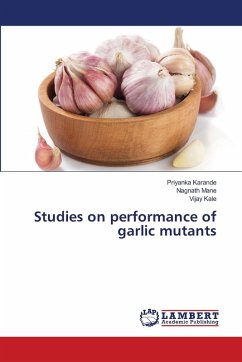
Studies on performance of garlic mutants
Versandkostenfrei!
Versandfertig in 6-10 Tagen
29,99 €
inkl. MwSt.

PAYBACK Punkte
15 °P sammeln!
The improvement in garlic was attempted for higher yield, better quality and storability in India and world. For successful improvement in any crop the knowledge of its genetic nature is important. Garlic is a sterile diploid (2n=2x=16). Since it is a clonally propagated crop, less variability exists. In consequence garlic breeding has been limited to the selection through the pre-existing genetic variability and increase in garlic variability was attempted via mutation breeding and in-vitro techniques. So, it was important to induce variability through mutation. Various physical and chemical ...
The improvement in garlic was attempted for higher yield, better quality and storability in India and world. For successful improvement in any crop the knowledge of its genetic nature is important. Garlic is a sterile diploid (2n=2x=16). Since it is a clonally propagated crop, less variability exists. In consequence garlic breeding has been limited to the selection through the pre-existing genetic variability and increase in garlic variability was attempted via mutation breeding and in-vitro techniques. So, it was important to induce variability through mutation. Various physical and chemical mutagens are used to induce mutations in plants. In all cases, an effective mass propagation system is needed for multiplication of selected elite material for commercial purposes. This book is help out the students, research workers and biotechnologists.





